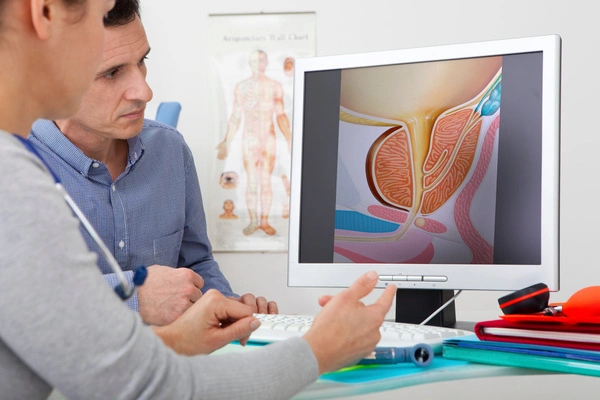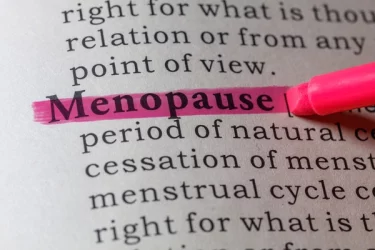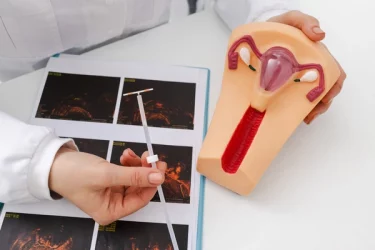Estimated reading time: 6 minutes
From urinary tracts to infertility, join us as we ask the question: what is urology? In this blog, we explore the common urological conditions, when to seek treatment for a urological issue, and what you can expect from a consultation with a urologist.

Private urology treatment at a glance
- Waiting time: 4-6 weeks
- Cost: treatment dependent
- Ways to pay: self-pay, insured, payment options
On this page:
Urologists are specialists who diagnose and treat conditions related to the urinary system and male reproductive organs. These can include infections, kidney stones, cancers, and incontinence. Early recognition of symptoms, lifestyle measures, and timely consultation can prevent complications, with private treatment offering faster access to care.
Urologists: experts caring for the urinary system and urological conditions
Urology is one of the most varied branches of medicine and spans a wide range of different issues, so we’ll try to keep it as simple as we can. As a medical field, urology specialises in surgical and medical issues of the urinary system. It covers the kidneys, bladder, urethra, adrenal glands and male reproductive organs.
According to the British Association of Urological Surgeons, a whopping 25% of all surgical referrals are for urological conditions with urology accounting for 10% of all GP consultations.1
The role of a urologist
A urologist is a medical professional specialising in all things urology. They can diagnose and treat conditions including:
- kidney stones
- urinary tract infections
- incontinence
- infertility
- cancers of the bladder, kidneys, and prostate
- impotence.
Not all urological conditions require surgery but all urologists are trained as surgeons.
When should you see a urologist?
Now that we’ve covered the basics of urology, what about seeing a specialist? If you’re experiencing any of the following symptoms, you should first see your GP:
- difficulty urinating (includes not being able to go and urinating more than usual)
- blood in your urine
- cloudy urine
- difficulty getting and maintaining an erection for sex
- pelvic pain.
Your GP should be your first point of contact before being referred to a urology specialist – if needed.
Common urological conditions
While urology spans a wide range of different conditions, the most common include:
- urinary tract infections (UTIs)
- urinary incontinence
- blood in your urine
- enlarged prostate
- bladder pain.
At Practice Plus Group, we can help with the following urological conditions:
- Vasectomy (and vasectomy reversal)
- Circumcision and prepucioplasty
- Diagnostic flexible cystoscopy
- Diagnostic endoscopy
- Urethral dilation
- Frenuloplasty
- Epidermal cyst removal
- Excision of penis lesion
- Scrotal and penile cyst removal
- Hydrocelectomy
- TURP for benign enlargement of prostate (not available at Practice Plus Group Hospital, Shepton Mallet)
- Simple urethral stricture treatment.
Not all procedures are available across the board at our hospitals, so it’s worth checking our Urology treatments page for more information.
Signs and symptoms of urological conditions
According to the British Association of Urological Surgeons, nine out of 10 patients referred to a urologist don’t need surgery; their condition can be treated with more conservative methods.
With that stat in mind and as with many health concerns, it’s important to recognise the signs and symptoms at an early stage to prevent the issue from developing. The following are common signs that you may be suffering from a urological issue:
- a burning or painful sensation when urinating
- cloudy, bloody, or foul-smelling urine
- difficulty urinating or urinating more often than usual
- pain in the pelvic area, lower abdomen, or back
- incontinence
- erectile dysfunction or difficulty ejaculating
- a general feeling of being unwell (includes fever, chills, or nausea).
If you’re experiencing any of the above symptoms, you should first seek help from your GP before approaching a urologist.
Lifestyle and preventative care for urological health
We’ve talked about the signs of urological issues and the different treatments available, but what about trying to prevent them in the first place? Let’s take a look at the different lifestyle changes you can adopt that will decrease the risk of developing the conditions mentioned in the sections above. Spoiler alert: they might not all be what you expect!
Diet and hydration for kidney and bladder health
Ok, this more than likely is one you’d expect to see. It’s no secret that drinking plenty of water and maintaining a balanced diet is good for your health. And, when it comes to urological conditions, it’s no different. On a colour grading scale, you should aim for your urine to be a pale yellow and you should be keeping the fizzy drinks to a minimum. These can irritate your bladder, increasing the need to urinate.
Exercise and the urinary system
As with general health, the advice here hits all the usual notes: exercise regularly to help ensure you maintain a healthy weight. But did you know that keeping your pelvic floor muscles strong can also be very effective in preventing urological conditions? There’s something called a Kegel exercise which sees the repeated contraction and relaxing of the muscles used to stop the flow of urine. Holding these muscles for 5 seconds before relaxing and repeating this exercise a few times a day can really help strengthen your pelvic floor. Regular yoga and pilates classes can also be really effective.
Practise good bathroom habits
Here’s the one you might not have expected. Did you know that urinating after sexual activity is a great way of clearing bacteria from the urethra? Making sure your bladder is totally empty when urinating and solving constipation issues as quickly as possible are also top tips when it comes to reducing the risk of developing urological issues.
What to expect from a urology consultation
At Practice Plus Group, a urology consultation is much the same as for most other treatments. If you’re a private patient, the appointment costs £95 and includes x-rays, blood tests, and swabs if needed. The consultant will also carry out a physical examination and ask questions about your general health and family medical history. This is all to develop an understanding of your specific issue, arrive at a diagnosis, and devise a treatment plan.
If your consultant thinks you need further diagnostic imaging to accurately diagnose your condition (e.g. MRI scans), this will incur extra costs. The reasons for needing the scans will be explained to you in detail, so there are no surprises.
The consultation is also an opportunity to ask questions about your condition and treatment. We’ve compiled a list below that you might want to take with you:
- What condition do you think I might have, and what tests are needed to confirm it?
- Are there non-surgical treatment options available for my condition?
- If surgery is recommended, what type of urological procedures are suitable for me?
- What are the risks and benefits of a minimally invasive procedure compared to traditional surgery?
- How long is the expected recovery period after urology surgery?
- Will treatment affect my urinary or sexual function?
- How can I manage my symptoms while waiting for treatment?
- What lifestyle changes could help improve my urinary system health?
- Is my condition likely to get worse without treatment?
- How often should I come back for follow-up appointments or monitoring?
Patient stories: experiences with urology care
Enough from us, let’s have a look at what some of our past urology patients have said about their experiences at Practice Plus Group.
“Would highly recommend. I opted to go for self-pay urology treatment after really long waiting times at my local NHS hospital. Got my first consultation with the specialist within about 2 weeks and had surgery 1 week later. All the staff were extremely friendly, my consultant Chris Parker, was very friendly and knowledgeable and explained everything thoroughly. The anaesthetist was probably the nicest person I’ve ever met, very understanding and reassuring, easing any pre-surgery worries I had. Recovery was much quicker and a lot less painful than expected. Very happy with my experience.”
Oliver, urology patient at PPG Shepton Mallet
Waiting times for urology treatments: NHS vs private care
Next stop: urology waiting times! How long are you going to have to wait for your urology treatment? Well, NHS patients should expect a much longer wait than their private counterparts. For example, the current waiting times for urology treatment at the Gateshead Health NHS Foundation Trust is 42 weeks (22 weeks for a consultation followed by 20 weeks for treatment).3 To compare that to an NHS hospital in another part of the country, down in the South-west, the current urology waiting times at the Great Western Hospitals NHS Foundation Trust is 36 weeks (16 weeks for consultation, 20 weeks for treatment).4
(Practice Plus Group is not responsible for and does not control the content displayed on external websites.)
Following a consultation (typically booked in 1-2 weeks after booking), private patients at Wellsoon from Practice Plus Group can expect to have their urology treatment in just 4-6 weeks.
Please note that while private urology treatment is available at our facilities in Devizes, Shepton Mallet, Emersons Green and Southampton, Practice Plus Group Surgical Centre, St Mary’s Portsmouth only offer urology treatment via the NHS.
Share
FAQs: Urology treatments and surgery
Not yet found the urology information you’re looking for? Perhaps our dedicated urology FAQs can help!
The most common urology procedures are urinary tract infections (UTIs) and urinary incontinence.
No. According to the British Association of Urological Surgeons, nine out of 10 patients referred to a urologist don’t need surgery. Instead, their condition can be treated with more conservative methods.
A urologist can diagnose and treat conditions including:
– kidney stones
– urinary tract infections
– incontinence
– infertility
– cancers of the bladder, kidneys, and prostate
– impotence
In some cases, yes. An enlarged prostate can be treated with lifestyle adjustments (improved diet and hydration), medication, or minimally invasive procedures.





